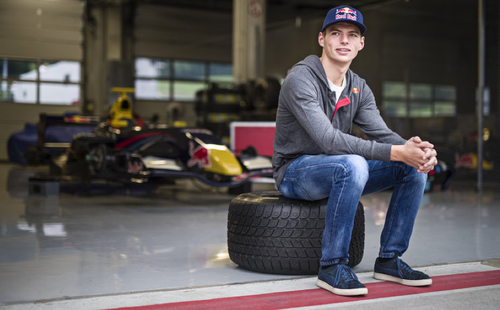Yahoo – AFP,
Julia Zappei, 29 Aug 2014
 |
Airport groundstaff walk past Malaysia Airlines planes parked on the tarmac at
the Kuala Lumpur International Airport in Sepang on June 17, 2014 (AFP
Photo/Manan Vatsyayana) |
Malaysia
Airlines will slash 6,000 jobs, trim its route network, and replace its CEO
under plans announced Friday to stave off bankruptcy after two air tragedies
plunged the already troubled carrier deeper into crisis.
State
investment fund Khazanah Nasional, which controls the failing flag carrier,
said it would pump 6 billion ringgit ($1.9 billion) into the airline, hoping
the changes will return the company to profitability within three years.
Khazanah's
Managing Director Azman Mokhtar said, however, there were no plans to change
the carrier's name -- now deeply tarnished by its association with the MH370
and MH17 tragedies, which have pummelled bookings.
 |
Azman
Mokhtar, managing director of state
investment fund Khazanah Nasional Berhad
which owns Malaysia Airlines, addresses
media in Kuala Lumpur, August 29, 2014
(AFP Photo/Manan Vatsyanana)
|
"The combination
of measures announced today will enable our national airline to be
revived," Azman said.
Aviation
analysts, however, said it was far too early to predict success, citing a lack
of details in the plans, intense industry competition, and the airline's
sullied image.
Malaysia
Airlines (MAS) has bled money for years, with analysts blaming poor management
and a failure to keep up with industry competition.
But the
outflow has become a torrent due to this year's disasters.
MH370
mysteriously vanished on March 8 with 239 passengers and crew aboard. MH17 went
down July 18 -- believed hit by a surface-to-air missile -- in rebellion-torn
eastern Ukraine, killing all 298 on the plane.
MAS
previously had a solid safety record.
Smaller
staff, regional focus
The airline
released a statement saying its flights would operate as normal during the
restructuring.
Azman said
the company will shed about 6,000 -- or 30 percent -- of the airline's nearly
20,000 employees.
Ismail
Nasaruddin, head of Malaysia's flight attendants union, said the union was
awaiting details on how the layoffs would be carried out.
"The
numbers are pretty high," he said. "A lot of frustration is in the
air. That's obvious."
MAS also
will "rationalise" its flight network -- a term it has used
previously for cutting unprofitable routes -- to become a "principally
regionally focused" carrier, Azman said, giving no further details.
 |
A Malaysia
Airlines employee writes a message expressing prayers and well-wishes
for
passengers onboard missing Malaysia Airlines (MAS) flight MH370 at Kuala Lumpur
International Airport in Sepang on March 14, 2014 (AFP Photo/Manan Vatsyayana)
|
A new CEO
would be chosen by end-2014, though current under-fire boss Ahmad Jauhari Yahya
would stay in charge until July 2015 to ensure a smooth transition.
Azman added
that Khazanah may sell stakes in the carrier to strategic buyers from the
private sector in the future.
Khazanah
Nasional, which already owns 70 percent of Malaysia Airlines, announced plans
in early August to acquire all remaining shares and de-list the company's stock
as it works to revive it.
That
process is still under way, and it remains unclear whether Khazanah will be
able to carry out its plans.
Even before
this year, aviation analysts have long said the airline needed wholesale
reform.
Some also
have complained that MAS CEOs have come from non-aviation sectors, blaming that
for a series of poor business decisions over the years.
The carrier
has controversially been kept aloft for years by transfusions of public money,
and Azman stressed that "public accountability for the use of the
funds" means the carrier cannot remain on life support "at any
cost".
But Shukor
Yusof of aviation consultancy Endau Analytics said Khazanah's plans were
essentially a government bailout.
'Throwing
good money after bad'
"This
is throwing good money after bad," said Shukor, who called the plans
"piecemeal."
 |
Normi
Abdullah (C) wife of Malaysia Airlines in-flight
supervisor, Mohd Ghafar Bin
Abu Bakar, one of the
Malaysians killed in the July 17 MH17 disaster, cries
during a ceremony at Kuala Lumpur International
Airport in Sepang on August 24,
2014 (AFP Photo/
Mohammed Rasfan)
|
"Returning
to profitability in three years is wishful thinking. Its brand is now severely
damaged."
He said
Khazanah was part of the problem, noting that previous turnaround strategies
under it have failed.
Adrian Ng,
analyst with Kenanga Research, said too little was known about the company's
future focus to say whether MAS can become self-sustaining.
"The
industry is tough, and the competition is very stiff," he said.
On
Thursday, MAS announced that it posted its sixth straight quarterly loss in the
April-June period and predicted more losses this year as the disasters' impact
on bookings intensifies.
MH370
inexplicably diverted from its Kuala Lumpur-Beijing course. The Malaysian
government believes it went down in the Indian Ocean, but no trace has been
found.
The
government and Malaysia Airlines came under fierce global criticism over their
failure to account for the jumbo jet, a slow-footed response and accusations of
secrecy.
Western
leaders say MH17 was shot down by pro-Russia rebels in Ukraine. An
investigation is ongoing.


































